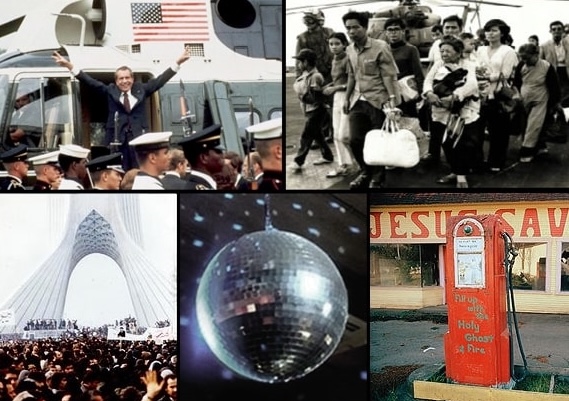Books & Culture
Party, Write, Repeat
Rob Spillman’s All Tomorrow’s Parties is a literary everyman’s story

I knew that by picking up Rob Spillman’s All Tomorrow’s Parties I would be reminded of many personal experiences from adolescence. For the qualifiers that we don’t share (I’m a 27 year old woman, for one) there were a multitude of life choices we did share: I speak German and lived there when I was younger; my teenage years were constructed by punk albums and friends who pushed me to go against my at-times baffling trust of authority; I also work in publishing. As Spillman rightly observes: “My friends were my collective alter ego.” So, when Spillman begins his memoir by running through an abandoned subway line in East Berlin, heading to a hidden rave and being handed questionable drugs by random Germans, I immediately remembered my first weekend in Berlin just a few years ago.
All Tomorrow’s Parties is at once a completely relatable and unique coming-of-age story. While Spillman, as a young kid in the US, details moments of self-creation — the first time he heard punk music, drinking and doing drugs, his first job — our own memory wheels start cranking. It’s hard not to remember all those times you totally fucked up, or were totally fucked up, and made it out okay. Spillman hasn’t quite lost his youthful vigor; in his recounting, it’s clear he loves the life he’s led and still itches for it.
“All Tomorrow’s Parties is at once a completely relatable and unique coming-of-age story.”
“Of course I’m going to throw myself into the abyss. That’s what I do — throw myself into the unknown,” he writes after moving to East Berlin in the 1990s with his wife, writer Elissa Schappell. His desire for an exciting life can be infectious, and his ultimate pursuit of it makes for an exhilarating read.
What sets Spillman’s narrative apart from most memoirs is the context. Born in Germany to traveling musicians who, while not entirely intentional, set out on a life outside of the norm, Spillman’s path was most likely set the moment his parents took up music. Picking up an instrument was a natural act; it was a part of their being.
“For my parents, music was a journey and a destination. Music allowed my parents to escape toward something.”
His childhood and youth played out backstage at operas and shows, sculpted by late-night conversations with musicians, directors, actors. These parties and dinners molded Spillman into being the “restless, heedless” wanderer we encounter in other chapters. While his parents’ identity was set in stone early on in their lives, Spillman struggles with identifying that one natural calling in his own life.
“Their stories of determination, drive and single-minded focus formed the stark background to my opposite childhood of indecision, lethargy, and scattered focus. I didn’t know what I wanted to do at age four, or eight, not to mention thirteen or sixteen.”
Spillman opens up with a candid level of honesty about his father and mother’s divorce, so much that we are grateful for his vulnerability. She left after they split, and it wasn’t until his pre-teen years that he would be reunited with his mother. “Her absence was a void, an unexplained vacancy. It was always there, but never acknowledged. Not by my father, and not by me, for fear of driving my father off as well. I felt responsible for her absence. And if she could disappear, so then could my father.” Spillman lived those pivotal years in Germany with his father, a musician who would let him tag along to dinners, performances and after-parties. While we’re told early on that Spillman’s father is gay, we’re not entirely sure if his parents divorced because of this until much later. Regardless, while he and his father steered clear of personally delicate conversation, Spillman was shaped by a sensitivity and earnestness that is compelling. “My father was living for art. I couldn’t image anything more romantic and ideal. I still can’t.” Throughout the memoir, Spillman reaches back to those quiet moments with his father like guiding lights; they inspire him to pursue a life outside the norm — which to him means a writing life as an ex-pat. He moves to Lynchburg, Virginia to live with his mother in his early teens. Her life of constancy and precision is starkly different from what he’s known until that point. These differing realities fuel Spillman’s restlessness and uncertainty: about his life and desires and about where he ultimately belongs.
“Spillman opens up with a candid level of honesty.”
Berlin after the fall of the Wall is wonderfully illustrated. Via certain Berliners’ narratives we learn about the after effects of reunification. The East Germans he encounters — Ralf, the particle physicist who reveals the fear of day-to-day life in East Germany through stories of his compulsory service or Ringo, an East Berlin insider with connections to abandoned apartments and Soviet tanks — remind us not only of the exciting artistic and cultural potential of the time, but also of the frightening and confusing future they were as yet unsure of but knew was around the corner. Moments like his laundromat escapade (which I won’t go too into detail, but which hilariously points out the otherworldly-ness of capitalist economics, all while pointing a mocking finger at the writer himself and his unchecked stubbornness) in East Berlin, and their adventures in the post-Soviet rave scene paint a picture of a Berlin on the brink.
Spillman’s strengths lie in his storytelling and ability to recall memories and actions. But while his crystal clear memory is appreciated in certain instances, like in recounting moments with this family or his adventures throughout Berlin, he fails to remind readers of the necessary years of introspection that no doubt led him to certain very well-formed perceptions or ideas. When Spillman moves to Baltimore with his mother, his identity as an outsider crystallizes. He rejects the way his classmates live and resents their privilege and brings up his own rejection of “White Male Privilege.”

All Tomorrow’s Parties is about more than those parties that make up Spillman’s youth. It’s a love story, between Spillman and his wife, Elissa, whose courage and smarts are amplified next to Spillma’s own ambitions and hunger for life. Leaving their NYC lives for Europe, the two have to confront those parts of their personality that set them apart from each other and what their true motives were for setting off on this adventure. “When I moved to the States I defined myself as being from Berlin. I was a Berliner removed from Berlin, and I would return home. What the hell was I thinking? Berlin is an idea. It isn’t my home. Elissa is my home.” This honest appreciation of his wife mirrors the earlier love we see towards his parents. While Spillman struggles with seeing who he truly is, it’s clear that his relationships determine that identity.









